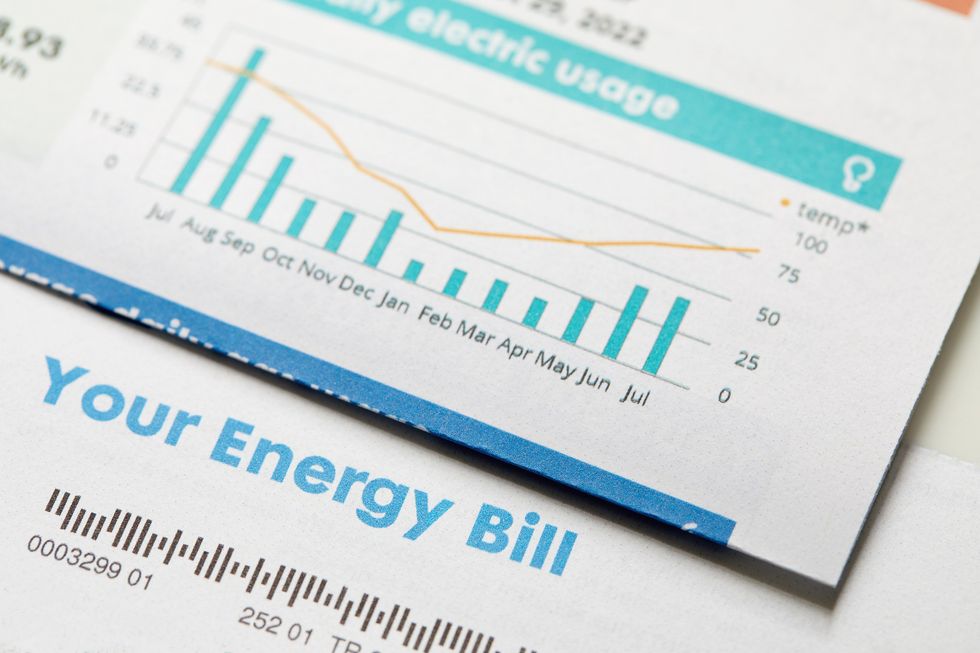A home battery can cost up to £10,000
GETTY
A home battery can optimise power usage, cut the electricity bill and make the home more energy efficient
Don't Miss
Most Read
Trending on GB News
Installing a home battery can cut energy bills by as much as 85 per cent, saving up to £796 a year, research shows.
A home battery should significantly reduce the energy that people buy from the grid every year, but these savings will depend on the home battery’s capacity, how much they interact with it and their energy usage.
Although energy prices are coming down, bills are still higher than many are used to.
As a way to save hundreds each year, Britons are urged to consider renewable technology as away to cut their energy bills.
Renewable technology is on the rise among British homeowners, with over 1.7 million low-carbon technology installations being made across the country, according to the Microgeneration Certification Scheme (MCS), which oversees the industry’s standards.
Solar panels continue to be the most common option, with more than 183,000 purchased last year alone.

Experts believe a home battery can cut your energy bills by as much as 85per cent when combined with solar panel
GETTY
Thomas Farquhar, co-founder of Heatio explained to GB News that home batteries, along with other renewable technologies like solar panels and heat pumps are very effective in not only saving money but reducing our carbon output.
He said: “Savings very much depend on what system you are replacing, the size of your property and whether you are combining it with other technologies like Solar."
Experts believe a home battery can cut energy bills by as much as 85 per cent when combined with solar panels.
According to British Gas, the average annual electricity bill for a medium three-bedroom house occupied by two or three people is now £937 - meaning a home battery and solar panels could save them up to £796 a year.
Christelle Barnes, of SolarEdge, said: “It’s absolutely possible to save 85 per cent, and even more in some cases if you’re savvy, but there are some customers who are saving 30 per cent. It’s dependent on your usage, size of system and whether you have a battery.
“There’s no one-size-fits-all approach. The word we use is ‘flexible’. This is a flexible technology that can adapt and evolve as your energy needs change.”
A home battery is an investment a household can make for future savings. Prices range from £2,500 up to £10,000 and beyond. In general, more expensive models charge more quickly and have more energy storage.
People will also need to buy an inverter, which communicates between the National Grid, their battery and its software.
This can cost upwards of £500. It converts direct current (DC), generated by solar panels, into alternating current (AC), which can be used at home.
Farquhar explained other types of renewable technology that Britons can invest in, which could fit more of a budget.
He said: "Solar panels can be used in conjunction with home batteries. Panels capture the sun’s energy and convert it into electricity.
"Heat pumps are an energy efficient, low carbon way to heat your home. It does this by taking in heat energy from a colder area, usually outside and raising its temperature.
"A heat pump provides heating and hot water and can work in combination with radiators, underfloor heating or other water-based heating systems."
LATEST DEVELOPMENTS:
However, he warned that all renewable technology comes with a cost and there are finance support schemes, such as the Boiler upgrade scheme which can help people make these changes in the home.
The Boiler Upgrade Scheme gives grants to people who install a low-carbon heating system in place of existing gas or oil heating. People can apply for up to £7,500 towards the cost of a heat pump.
The grants can only be used for replacing fossil fuel heating systems, such as gas, oil, or direct electric heating, and not for replacing existing low carbon systems.
Farquhar concluded: "Some homeowners are reluctant to make changes if they can’t have solar panels and batteries and a heat pump, but we believe that any small change is a good change, so would encourage people to do what they can afford at the time and don’t delay."







